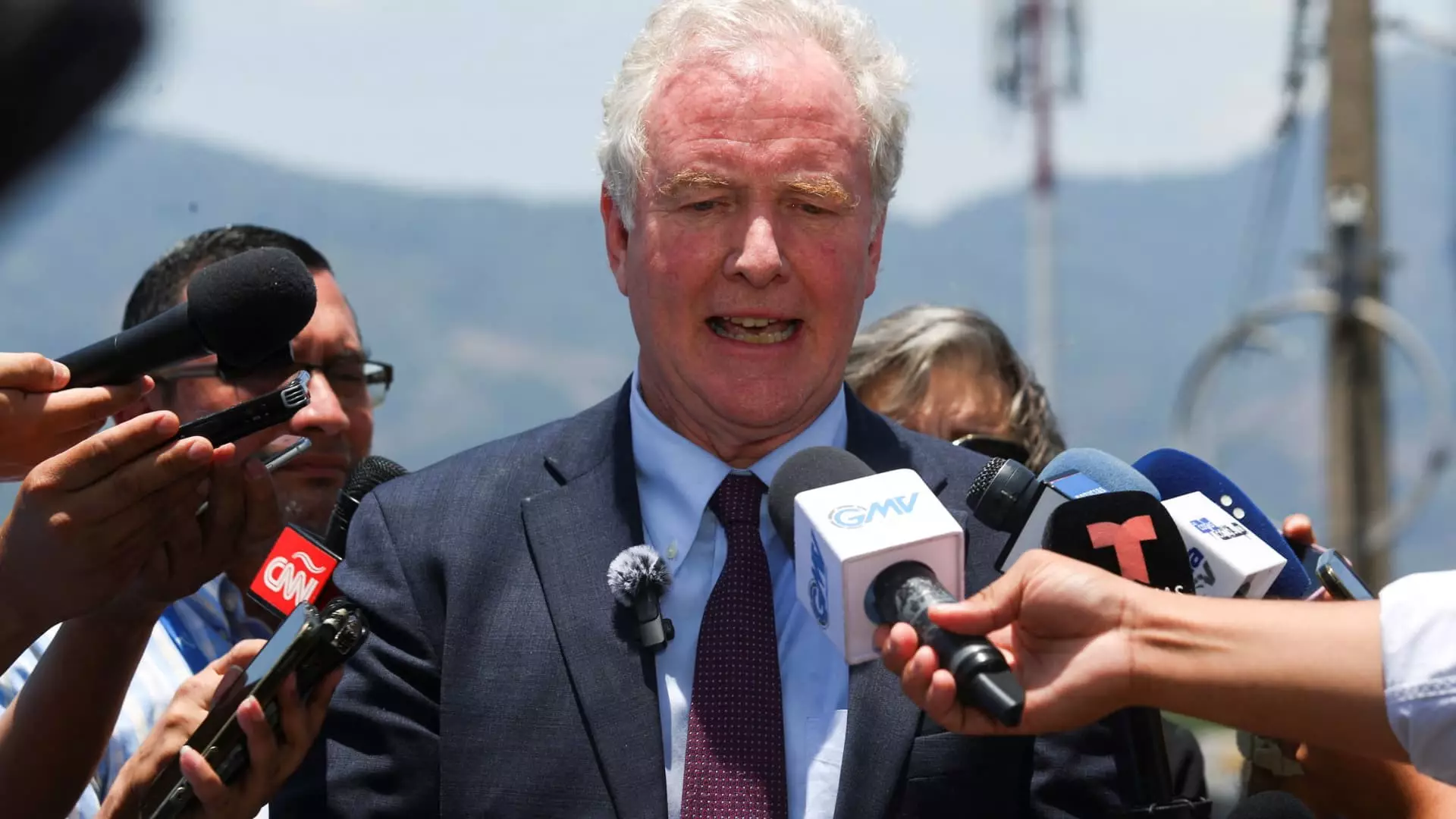In a political landscape that is becoming increasingly polarized, the case of Kilmar Abrego Garcia acts as a stark reminder of the real consequences of misguided policies and bureaucratic error. The recent confirmation by Senator Chris Van Hollen regarding his meeting with Garcia in El Salvador underscores a significant moral failing on the part of the previous administration. The fact that a man has been wrongfully deported, and yet remains ensnared in a web of political indifference, raises essential questions about justice and accountability in our immigration system.
Garcia’s situation highlights a dangerous mix of American negligence and international detachment. The Senator’s comments about his intention of meeting Garcia, coupled with the apparent refusal of Salvadoran authorities to honor his rights, illustrate a troubling disregard for human life and dignity. The Trump administration’s insistence on misleadingly labeling García as a terrorist in order to justify his deportation to El Salvador—despite a Supreme Court ruling mandating his return—reveals an alarming willingness to sacrifice individual lives for the sake of political expediency.
The Role of Political Leaders
In recent weeks, Van Hollen has taken it upon himself to be the voice of reason and compassion in this harrowing affair. His meeting with García, as well as his efforts to communicate with his wife, Jennifer, are commendable steps towards rectifying an egregious wrong. However, what stands out is the palpable frustration caused by the restrictions laid down by Salvadoran authorities, reflective of an environment that values control over human rights.
The refusal of the Salvadoran authorities, including Vice President Félix Ulloa, to allow the senator entrance to the prison where García is being held reveals a deeper issue—a blatant prioritization of solidarity with a former U.S. administration that has been anything but a champion for human rights. The irony of this situation cannot be lost: an American citizen is fighting for his basic rights in a foreign land, while his own government remains woefully ineffective in advocating for him.
Human Rights and the Suppression of Information
One of the most alarming aspects of García’s continued detainment is the dearth of information regarding his wellbeing. Statements from Maryland officials demanding verification of García’s health echo the chilling reality of immigrant lives caught in limbo, where transparency is the furthest thing from the mind of authorities. The demand for “verifiable proof” of his safety translates into the realization that many immigrants do not experience the protections afforded citizens.
The circumstances surrounding García’s deportation have placed his family in an unimaginable predicament. A spouse separated without any means of communication embodies the pain and desperation faced by countless families that have become victims of harsh immigration policies. Van Hollen’s attempts to facilitate communication with García have been met with resistance, further entrenching the emotional turmoil his loved ones must be enduring. This fundamentally challenges our sense of morality as a nation; when did we become so dismissive of human suffering behind the guise of policy?
The Legal Quagmire of Deportation Rules
The complicated interplay between various legal frameworks—U.S. immigration directives, international human rights standards, and the decisions of foreign governments—further complicates García’s plight. The contradiction of a court ruling supposedly protecting him from deportation, only to have the executive branch circumvent this order, exemplifies the chaos that can ensue when legal loopholes are exploited for political gain.
Such disregard for due process should alarm every citizen regardless of their political affiliation. A society promising justice should not allow one of its own to become collateral damage in a war fueled by divisive rhetoric and misguided priorities. The long-lasting impact of these actions not only affects individuals in their moments of crisis but can also erode public trust in the very institutions meant to protect and serve all citizens.
As the events surrounding Kilmar Abrego Garcia unfold, it becomes increasingly apparent that a cohesive response from the U.S. government is not just necessary—it is imperative. Our collective humanity depends on the championing of justice, both at home and abroad. The question remains: will we rise to meet that responsibility, or allow the tide of political expediency to pull us further away from the values we claim to uphold?



Leave a Reply